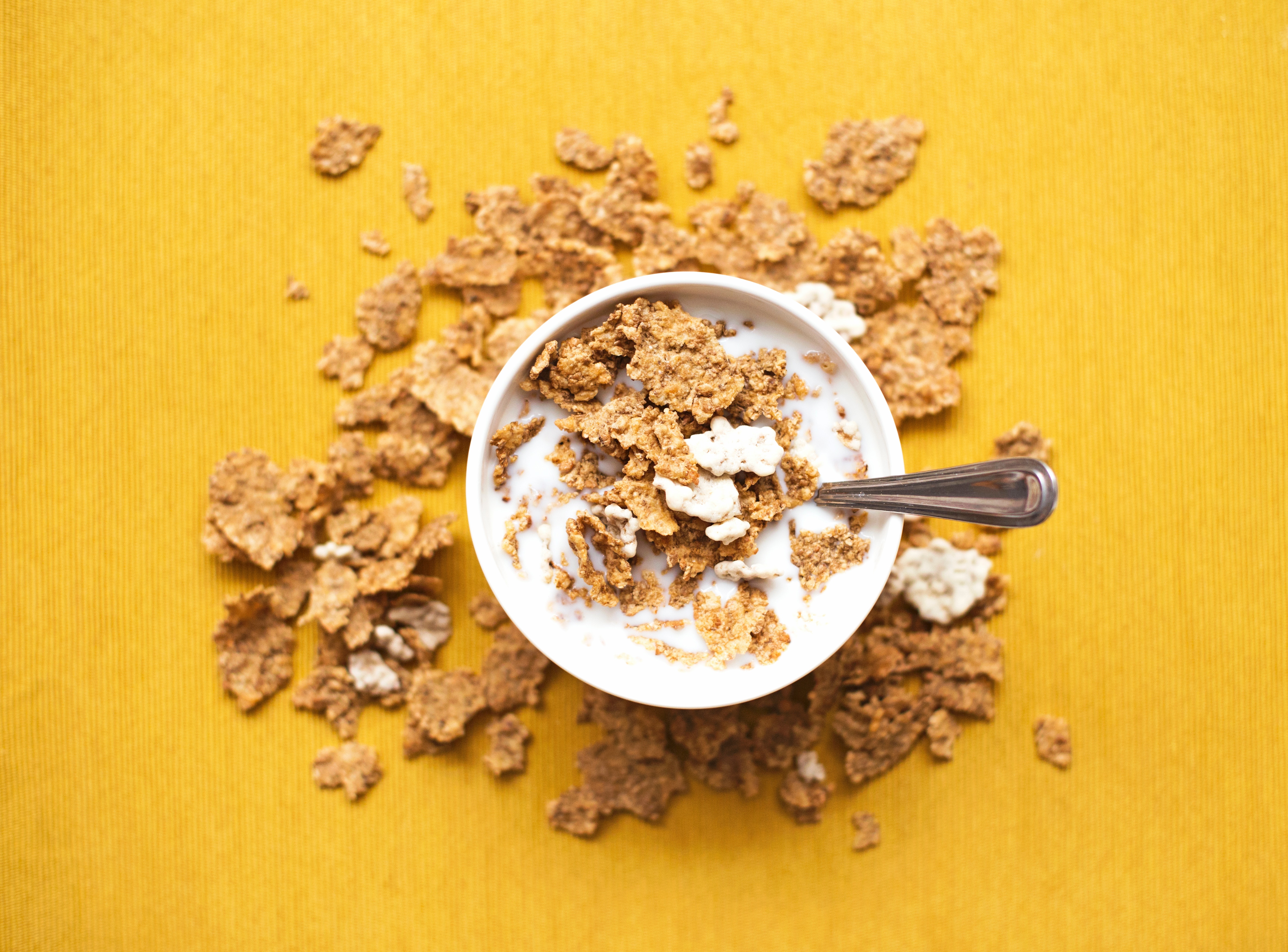How did breakfast become important in our lives?
It's widely regarded as the cornerstone of nutrition and without it we probably wouldn't be able to function properly in the morning, alongside with a nice cup of coffee.
But why?

Image CC0 Creative Commons Photo Credits on Unsplash
Probably thanks to James Caleb Jackson and John Harvey Kellogg.
Yup. Those two are the names of the creators of Granola and Kellogg's cereals. Before them, breakfast wasn't considered a fundamental practice in order to live an healthy life. Their slogan:
"Breakfast is the most important meal of the day"
definetely put this meal on a pedestal. Nowadays it's not as popular as it used to be, but still, most people "Just Know" that having a yummy nutritious breakfast is something that has to be done to start the day off on the right foot.
Fun Fact #1: Kellogg didn't like people to masturbate so he, alongside Mr. something something Jackson, created the aforementioned breakfast cereals and the myth behind it. Amazing, right?
Back to us, not really the first time someone uses a slogan to put value on the item they want to market and it creates such a big trend that the catchphrase, true or false, creates a whole tradition carried forth by the whole humanity.
So breakfast isn't important, is this what are you trying to say?
Yes and no. Truth to be told, breakfast is important only if you regard it as such and according to your own personal preferences, physical responses to it and objectives. It's false to say it must be done otherwise your biological mechanisms won't function like other people's. Athletes can have it different because if they happen to workout in the morning, they seem to be in need of a proteic meal within few hours or so in order to satisfy their organisms and adapting it to their body evolution-aiming goals.
Trust me, always be skeptical of silver bullet "[...] is the one thing everybody should do" statements. Uhm...And also, "Always" is usually misused.
Skipping breakfast is probably useful to those who doesn't feel like doing it (which oftentimes means they don't need it), people who want to lose weight and/or those who embrace an eating schedule that includes fasting regimens.
As long as the caloric intake remains the same, there won't be noticeable changes.
Most things have their own pros and cons, their safety profiles so forth and so on. It's important to inform ourselves and experiment. Eating once a day or eating 6 times a day can be both beneficial for the dieting person.
Granted, it will be hard for a bodybuilder to fit in one single meal of the day 3000-6000 calories a day with "healthy" food and for it to be happening in a short window of time from their workout.
Test out things yourself and get to know your bodies and what you put in them. But don't make it a big imposition if you feel doing/not doing breakfast doesn't match you. It's been proven that this kind of fastidious shift, often for weightloss purposes, leads to the opposite conclusion.
References:
A randomized controlled trial to study the effects of breakfast on energy intake, physical activity, and body fat in women who are nonhabitual breakfast eaters;
https://www.sciencedirect.com/science/article/pii/S0195666316310315Fasting until noon triggers increased postprandial hyperglycemia and impaired insulin response after lunch and dinner in individuals with type 2 diabetes: a randomized clinical trial.;
https://www.ncbi.nlm.nih.gov/pubmed/26220945Health effects of intermittent fasting: hormesis or harm? A systematic review.;
https://www.ncbi.nlm.nih.gov/pubmed/26135345The causal role of breakfast in energy balance and health: a randomized controlled trial in lean adults.;
https://www.ncbi.nlm.nih.gov/pubmed/24898233Effects of eight weeks of time-restricted feeding (16/8) on basal metabolism, maximal strength, body composition, inflammation, and cardiovascular risk factors in resistance-trained males.;
https://www.ncbi.nlm.nih.gov/pubmed/27737674Myofibrillar muscle protein synthesis rates subsequent to a meal in response to increasing doses of whey protein at rest and after resistance exercise;
https://www.ncbi.nlm.nih.gov/pubmed/24257722
Thanks for reading, hope you found this interesting as it was for me. Yours,
- Destrudo
It's interesting how things that we do in life (routines and behaviors) become common sense practices among large groups of people. But then when dig to find out and understand the origins of how these routines and behaviors came about, we find out that they really aren't based on anything of value - often just company marketing.
I've heard that many researchers are having difficulty finding evidence for breakfast being important for peoples health. It seems that only the research being conducted by food manufacturers are finding significant results in their research but these findings are proving to be difficult to replicate when the research is conducted by others out side of the food industry.
Nice post. Very informative and interesting